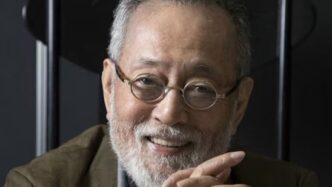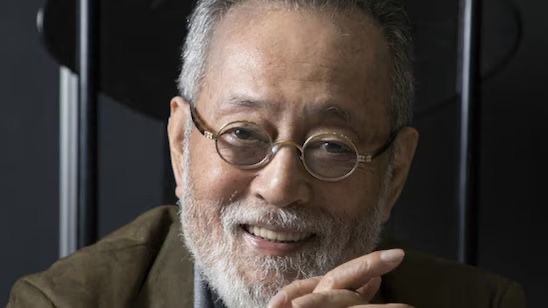On November 8, 2025, Japan lost one of its greatest screen titans. Tatsuya Nakadai, often called the “man of a thousand faces,” passed away in Tokyo at the age of 92 from pneumonia. His death marks the end of a remarkable career spanning more than seven decades, over 150 screen credits, and a legacy that deeply shaped Japanese cinema.
A Humble Origin, a Giant of Cinema
Born as Motohisa Nakadai on December 13, 1932, in Tokyo, he grew up in modest circumstances, the second of four children. After his father died when he was young, his family relocated and Nakadai eventually found his way into acting through the Haiyuza Training School.
His earliest screen appearance was tiny but symbolic: an uncredited samurai in Akira Kurosawa’s Seven Samurai. Yet that fleeting role belied what he would go on to become not just a reliable lead, but a chameleon of character, equally compelling as a samurai warlord, a disillusioned soldier, or a haunted ronin.
The Versatile Star From War to Blood and Honor
Nakadai’s breakthrough came in Masaki Kobayashi’s epic anti-war trilogy The Human Condition (1959–1961), where he played Kaji, an idealistic bureaucrat whose conscience leads him into harrowing circumstances. He famously endured brutal shooting conditions crawling under tanks, braving snow, and putting everything on the line to bring emotional truth to his role.
In Harakiri (1962), another Kobayashi film, Nakadai gave what many consider one of his defining performances: Hanshiro Tsugumo, an aging ronin who challenges the hypocrisy of feudal honor codes.
His collaborations with Kurosawa further cemented his legacy:
● In Kagemusha (1980), he played both a warlord and his double.
● In Ran (1985), he portrayed the tragic Lord Hidetora Ichimonji, a part inspired by Shakespeare’s King Lear.
He also appeared in Yojimbo and High and Low, showcasing his ability to move effortlessly between hero, villain, and deeply complex characters.
Beyond Film: The Stage and Mentorship
Although Nakadai is best known for his film work, he always considered himself first and foremost a theater actor. In 1975, he and his wife Yasuko Miyazaki founded Mumeijuku, an acting school devoted to grooming the next generation. Among his students was Kōji Yakusho, who would go on to become a major name in Japanese cinema.
Despite his fame, Nakadai resisted being locked into a single studio he refused a long-term contract, choosing instead to pick roles that challenged him.
His Legacy: Why He Was Called the “Man of a Thousand Faces”
Nakadai earned his nickname through his sheer versatility. He could be gentle and vulnerable or fearsome and relentless all in the same career. His very distinctive features, especially his large expressive eyes, allowed him to convey a wide emotional range, from tenderness to menace.
Critics often compared his depth and adaptability to Western legends like Marlon Brando or Laurence Olivier. Through his work, he embodied key themes of postwar Japanese cinema: honor, conscience, war, and personal identity.
He was honored many times: he received the Medal with Purple Ribbon in 1996 and Japan’s Order of Culture in 2015.
A Final Act That Never Really Ended
Even into his later years, Nakadai remained active. He continued on stage, acting into his 80s, and appeared on screen in films like The Pass: Last Days of the Samurai (2020), long after many had retired.
His death closes the curtain on an era but his influence endures. For audiences, actors, and directors around the world, Nakadai remains a beacon of what it means to transform, to commit, and to breathe life into a thousand different souls over the course of a lifetime.
Tatsuya Nakadai was more than a leading man he was a mirror, a vessel, and sometimes a wizard, conjuring entire worlds with just his eyes, his voice, and his presence. As we remember him, we do more than grieve a legend. We celebrate the power of performance, and how one life, lived on stage and screen, can touch eternity.
Originally written by: The Wall Street Journal
Link: https://www.hindustantimes.com/entertainment/remembering-tatsuya-nakadai-japan-s-man-of-a-thousand-faces-101763093155913.html















